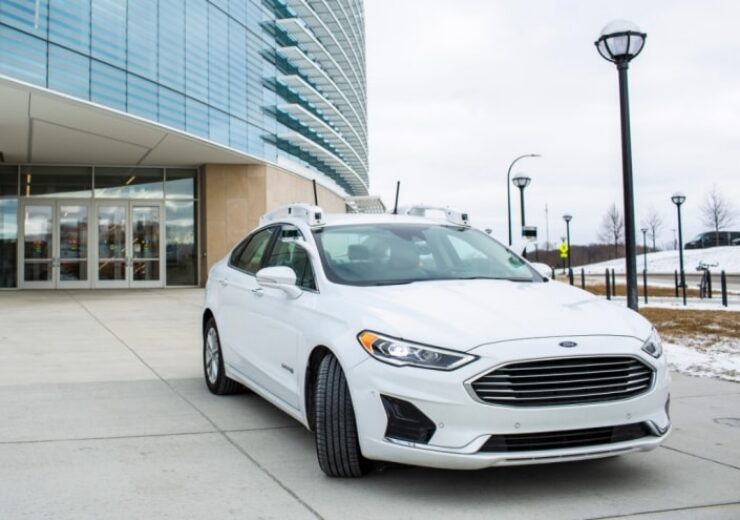Ford Motor will have a robotics and mobility research lab on the fourth floor of the building

Ford Motor will have a robotics and mobility research lab in the new robotics complex at the University of Michigan campus. (Credit: The Ford Motor Company)
The University of Michigan and Ford Motor are joining forces to open a $75m robotics complex in Ann Arbor, Michigan, the US to develop robots and roboticists.
The new four-storey, 134,000ft² robotics building will be located on the north campus of the university.
Its first three floors will be home to custom university research labs for robots that fly, walk, roll, and augment the human body. Apart from that, the three floors will accommodate offices, classrooms, and makerspaces.
The fourth floor will have the first robotics and mobility research lab of Ford Motor on a university campus. Besides, it will accommodate 100 researchers and engineers of the automaker.
University of Michigan Robert J. Vlasic Dean of Engineering Alec Gallimore said: “To me, this new building brings to life a collaborative, interdisciplinary community that I’m proud to host at Michigan Engineering.
“Our Robotics Institute upholds an explicitly inclusive climate and a culture that believes in the field’s potential to serve as an enabler for all, especially those who have previously been underserved.
“In this way, we aim to push the robotics field, and engineering more broadly, to become equity-centred – intentionally closing, rather than unintentionally expanding, societal gaps.”
The new robotics complex is said to bring together researchers from the university’s 23 different buildings and ten top-10 programmes.
It will enable researchers working on two-legged disaster response robots to test them on a 30mph treadmill fitted with obstacles, or on a stair-stepped robot playground.
The robotics complex will also provide earthquake platforms with force-feedback plates to biomedical engineers. These will help the engineers in developing lighter-weight, more efficient prosthetic legs.
On the other hand, Ford engineers can study how their Digit robots can operate in human spaces while taking autonomous vehicles from robotic computer simulations to on-road evaluation at a robot playground designed by artificial intelligence (AI).
Ford Motor chief technology officer Ken Washington said: “As Ford continues the most profound transformation in our history with electrification, connectivity and automation, advancing our collaboration with the University of Michigan will help us accelerate superior experiences for our customers while modernising our business.
“We also will broaden our learning through daily exposure to many robotics activities, such as considering how our Digit robots not only technically can master delivering packages from autonomous vehicles but also become valued parts of our neighbourhoods.”


